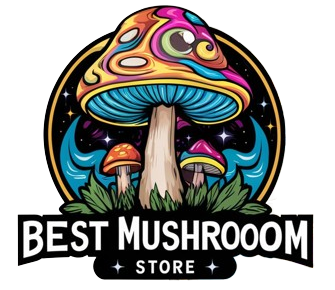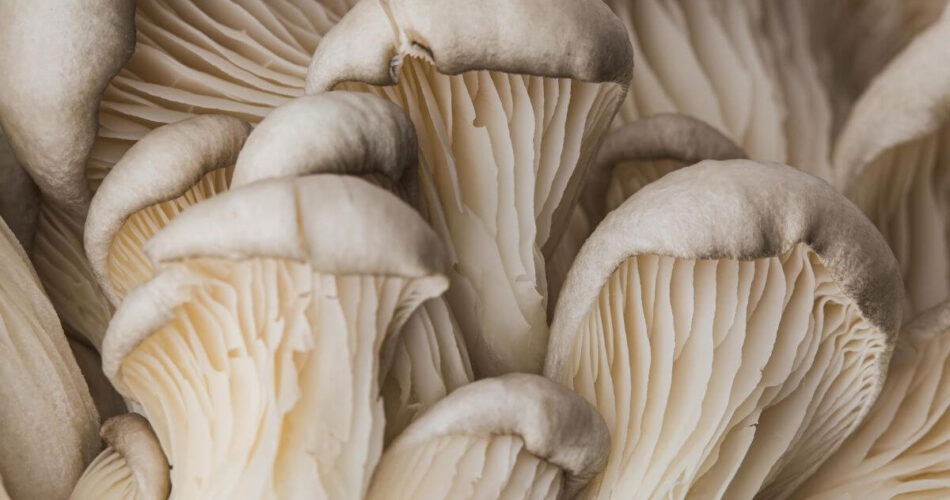Psychedelics are drugs that alter the user’s state of mind, and psilocybin is one of the most well-known psychedelics. Here’s all you need to know about psilocybin in hallucinogenic mushrooms, the adverse effects and more.
What Are Psilocybin Mushrooms?
Psilocybin mushrooms are a type of psychedelic fungi that have been used for centuries by cultures around the world for religious and spiritual purposes. These mushrooms typically contain compounds like psilocybin and psilocin, which produce effects like hallucinations, altered states of consciousness, and euphoria. While magic mushrooms have been historically associated with positive experiences, it’s important to remember that they can also cause negative reactions like anxiety and paranoia.
What Is Psilocybin?
Psilocybin is a naturally occurring compound found in certain species of mushrooms. When ingested, psilocybin produces altered states of consciousness that can include hallucinations and other perceptual changes. In recent years, psilocybin has been the subject of renewed scientific interest as a potential therapeutic agent for a variety of psychiatric disorders. Clinical trials are currently underway to evaluate the safety and efficacy of psilocybin-assisted therapy for conditions such as depression, anxiety, and addiction.
Psychedelic Substances
Psychedelics are a category of drugs that alter a person’s perception, mood, and cognitive state. They can cause hallucinations, dissociative effects, and changes in perception of time and space. Psychedelics can be found naturally in some plants and mushrooms, or they can be synthetic. The best-known psychedelics are lysergic acid diethylamide commonly known as LSD, psilocybin (magic mushrooms), mescaline (peyote), and DMT.
Psychedelics are used for medical purposes, such as to treat anxiety and depression, or for spiritual purposes, such as in ayahuasca ceremonies. They can also be used recreationally. However, they can also cause undesirable effects, such as bad trips and paranoia. Psychedelics alter a person’s consciousness by changing the way the brain processes information.
Effects of Drug Use: Psilocybin Mushrooms
This compound causes a range of physical and psychological changes, including altered perceptions, increased heart rate, and Increased blood pressure. People may also experience strong hallucinations. The effects of magic mushrooms typically last for around six hours. While there is no danger of overdose, some people may find the experience to be unpleasant. It is important to remember that magic mushrooms can have different effects on different people, so it is always best to approach them with caution.
Effects of Magic Mushrooms on the Brain
When consumed, psilocybin is metabolized into psilocin, which acts on serotonin receptors in the brain. This can lead to changes in perception, mood, and cognition. Psilocin binds to the 5-HT2A receptor, which is thought to be responsible for the psychedelic effects of psilocybin. Psilocybin also affects other serotonin receptors, which may contribute to its effects on mood and cognition. In addition, psilocin inhibits the reuptake of serotonin, resulting in increased levels of serotonin in the brain. This may explain why psilocybin is effective in treating depression and anxiety.
Is Psilocybin Addictive?
Psilocybin is not considered to be addictive in the traditional sense of the word. However, some people may develop a psychological dependence on the drug. Psychological dependence can lead to problematic drug-seeking behavior, but it does not necessarily mean that someone is physically addicted to the drug.
Psilocybin addiction is considered to be rare, and there is no evidence that it leads to any physical withdrawal symptoms when someone stops taking the drug. However, some people may experience psychological withdrawal symptoms, such as depression or anxiety. If you are struggling to stop taking psilocybin, it is important to speak to a healthcare professional for help and advice.
Psilocybin as a Therapeutic Medicament
Some people report feelings of euphoria and spiritual insights following its use. In recent years, psilocybin has been studied for its potential therapeutic effects. Some preliminary research suggests that it may help to address conditions such as depression, anxiety, and addiction.
Psilocybin is not currently approved by the FDA for any medical use. However, clinical trials are ongoing, and the results of this research will likely play a role in determining whether psilocybin is eventually approved as a therapeutic medicament. Currently, in Oregon or Canada, psilocybin is allowed to be used in therapeutic settings with the supervision of a healthcare professional. It is used to help people deal with psychological distress and problems such as addiction.
Psilocybin-Assisted Therapy (PAT)
The therapeutic potential of psilocybin-assisted therapy (PAT) has been gaining recognition in recent years. Also known as “magic mushroom therapy,” PAT typically involves the administration of psilocybin in a controlled clinical setting. While the exact mechanisms of action are not yet fully understood, it is thought that psilocybin may help to reduce anxiety and depression by balancing neurotransmitter levels and promoting neuroplasticity. A number of small-scale studies have shown promising results, with patients reporting significant reductions in symptoms following treatment. PAT is still in the early stages of research, but it holds promise as a safe and effective treatment for mental health conditions.
Psilocybin for Treatment-Resistant Depression
Depression is a serious mental illness that affects millions of people around the world. Despite the availability of treatment options, many people with depression do not respond to traditional therapies. For these individuals, treatment-resistant depression (TRD) can be a frustrating and isolating experience. Therefore, there is growing evidence that psilocybin, a naturally occurring psychedelic compound, may offer relief from TRD. While more research is needed to confirm these findings, psilocybin represents a promising new approach to treating TRD.
Negative Effects of Mushroom Use
It is not a secret that in special situations, psilocybin can be helpful. However, it does not mean that psilocybin is completely safe and harmless. Let’s explore the potential negative effects of psilocybin in more detail.
Bad Trips
First, it should be mentioned that psilocybin is a powerful hallucinogen, and it can easily cause bad trips. The bad trip is a very unpleasant experience characterized by fear, paranoia, and other negative emotions. In some cases, it can even lead to unintentional or intentional suicide.
Tolerance to the Substance
If you abuse this substance, you can develop a tolerance to it, which will make you take higher and higher doses in order to achieve the desired effect, even though the substance in itself is not as addictive as it is in other drugs.
Long-lasting Negative Impact on Health
Psilocybin can have a negative impact on your mental health. If you have any pre-existing mental health conditions, such as anxiety or depression, taking psilocybin can make these conditions worse. Additionally, if you have a family history of mental illness, you may be more likely to develop a mental illness if you take psilocybin.
Interaction with Other Medications
Psilocybin can interact with other medications that you are taking and cause dangerous side effects. For example, if you are taking antidepressants, taking psilocybin can increase the risk of serotonin syndrome, which is a potentially life-threatening condition.
While psilocybin can have some benefits, it also comes with a number of potential risks and dangers that have to be considered.
Legality of Magic Mushrooms
The legality of psilocybin is a topic of much debate. Some argue that it should be legalized for recreational use, while others claim that it should only be used for medicinal purposes. Despite the controversy, psilocybin is currently classified as a Schedule I drug in the United States, which means that it has a high potential for abuse and is not legal under federal law. However, the state of Oregon and some other cities in the United States decriminalized psilocybin. In Oregon, it is legal for medical and therapeutic purposes as well. Despite the fact that psilocybin can be beneficial, it still carries a risk of abuse and should be used with caution.
Similar Posts:
- Magic Mushrooms Benefits – Studies on Microdosing Psilocybin Mushrooms
- SSRI and Shrooms | Psilocybin Mushrooms With Antidepressants
- An Ultimate Guide to Magic Shrooms and Bipolar Disorder. All You Need to Know
- Can U Die From Shrooms? Psilocybin, Magic Mushrooms & Potential Danger
- Prozac and Shrooms: Is This Antidepressant Safe to Take With Psilocybin?
- Side Effects of Shrooms: Are Magic Mushrooms & Psilocybin Safe?
- Are Mushrooms Legal in Costa Rica? Use of Magic Mushrooms






